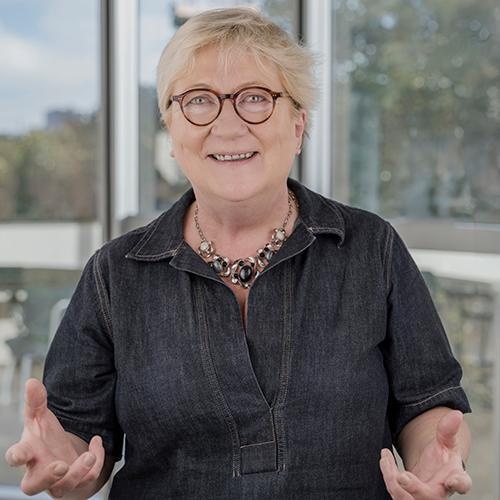International Day of Education 2025
Business Education in the Age of AI - A New Frontier
On International Day of Education 2025, dedicated to artificial intelligence, Professor Béatrice Collin explores how AI, virtual reality, and evolving student expectations are revolutionising business education. Her analysis underscores why traditional methods are inadequate in today’s dynamic landscape and how schools must innovate to stay relevant.
Beyond the Virtual Classroom
Imagine stepping into a virtual trading floor where you collaborate with peers from five continents, guided by an AI system that adjusts challenges to your unique learning style. This is not a distant dream but the emerging reality of business education. The transformation extends far beyond moving lectures online.
Modern students expect adaptable, personalised learning experiences that reflect their cognitive patterns and life circumstances. Whether balancing professional commitments, artistic pursuits, or athletic careers, one-size-fits-all education is a relic of the past.
 Prof Beatrice Collin
Prof Beatrice CollinAssociate Professor
Four Defining Trends
This shift in expectations manifests in four significant ways:
- Customised Learning Paths: Students seek programmes that unfold across diverse geographies and timelines, tailored to their needs.
- Integration with Professional Experience: Education must embed real-world applications, transforming work and study into complementary endeavours.
- Inclusive Learning Environments: Programmes must accommodate varied cognitive patterns and cultural contexts.
- Experiential Learning: Active, hands-on engagement replaces passive knowledge absorption.
The Role of Digital Innovation
Digital tools, particularly AI and VR, make these expectations achievable. Virtual reality enables immersive learning, transforming abstract concepts into real-world applications. For instance, students can navigate simulated environments, making decisions that mirror real-world complexities. VR also promotes inclusion by allowing students to interact through avatars, bypassing social or cultural stereotypes.
AI, meanwhile, offers unparalleled personalisation. By analysing learning patterns and aptitudes, AI adapts content delivery to each student’s strengths. For example, it can distinguish between visual and oral learners or sequential and holistic thinkers. For students with learning differences, such as dyslexia or dysphasia, AI creates equitable opportunities to thrive.
Challenges and Opportunities for Faculty
This transformation requires faculty to master a balance between asynchronous online learning, synchronous interactions, and in-person activities. Each mode demands distinct expertise, from designing structured learning paths to fostering engagement in live sessions and curating impactful face-to-face experiences.
Even assessment and content creation are evolving. Tools like ChatGPT can generate worksheets, summaries, and quizzes, freeing faculty to focus on high-value interactions. However, effective integration of these tools requires training and discernment, ensuring technology complements rather than replaces human connection.
A Call to Action for Business Schools
Business schools must lead this educational revolution. Their mission to prepare future leaders now includes pioneering the future of education itself. This entails investing in technical infrastructure and faculty development while maintaining the human and social dimensions of learning. Schools must create environments that are simultaneously personalised, inclusive, technological, and profoundly human.
Aligning with UNESCO’s Vision
This year’s International Day of Education theme, "Artificial Intelligence in Education: Opportunities and Challenges," resonates deeply with these transformations. UNESCO emphasises that AI should enhance, not replace, human learning experiences. As only 10% of educational institutions worldwide currently have AI frameworks, there is a pressing need for ethical guidelines and investment in training for both educators and students. By addressing these gaps, institutions can harness AI’s potential responsibly.
The Path Forward
As we navigate the opportunities and challenges posed by AI, the guiding principle must remain clear: technology should serve as a tool for autonomy and well-being. Business schools stand at the forefront of this revolution, tasked with shaping not only future leaders but also the future of education itself. Through innovation, inclusivity, and ethical integration of AI, the next generation of learners will have an opportunity to thrive in an ever-changing world.
Campuses
